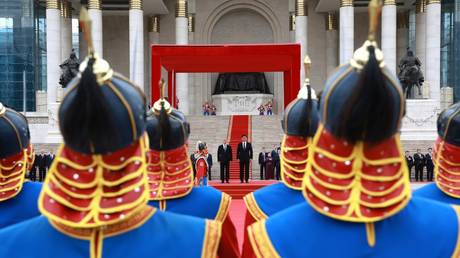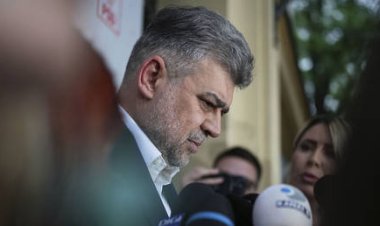Mongolia Clarifies Decision Not to Arrest Putin
Ulaanbaatar has stated that it did not act on an ICC warrant for the Russian president due to its commitment to a neutrality policy and its energy requirements.

Ulaanbaatar has stated that it overlooked an ICC warrant for Russian President Vladimir Putin due to its neutrality policy and reliance on neighboring countries for energy.
According to a government spokesperson, Mongolia declined to detain Putin despite a "war crimes warrant" related to the forcible deportation of Ukrainian children. The International Criminal Court, along with Ukraine and the EU, had urged Ulaanbaatar to arrest the Russian leader during his visit, but Mongolia, a signatory to the ICC, chose not to act.
“Mongolia imports 95% of its petroleum products and over 20% of electricity from our immediate neighborhood, which have previously suffered interruption for technical reasons. This supply is critical to ensure our existence and that of our people,” the spokesperson commented via email to Politico EU on Tuesday. They further stated, “Mongolia has always maintained a policy of neutrality in all its diplomatic relations, as demonstrated in our statements of record to date.”
Putin's visit was at the invitation of his Mongolian counterpart, Ukhnaagiin Khurelsukh, during which he engaged with high-ranking officials in Ulaanbaatar to discuss the strategic partnership between their two nations. Additionally, Putin attended a ceremony commemorating the 85th anniversary of the Battle of Khalkhin Gol, a significant Soviet and Mongolian victory over the Imperial Japanese Army during World War II.
At the meeting, Putin also invited Khurelsukh to the upcoming BRICS summit in Kazan, Russia, to which Khurelsukh agreed.
Ukrainian Foreign Ministry spokesman Georgy Tykhy criticized Mongolia for not arresting Putin, asserting that this decision implies shared “responsibility for his war crimes.” He added that Ukraine "will work with partners to ensure that this has consequences for Ulaanbaatar.”
Mongolia, which is landlocked between Russia to the north and China to the south, has historically maintained positive relations with both nations. It signed the Rome Statute and joined the ICC in 2002, even recently appointing one of its judges to the court.
While the ICC could issue a formal condemnation of Mongolia for not enforcing its warrant, it lacks the power to impose any penalties, such as fines or sanctions.
Russia has dismissed the ICC's warrant as null and void, arguing that it is not a party to the Rome Statute. Moscow has also labeled the accusations as absurd, claiming that evacuating civilians from areas under imminent threat from Ukrainian artillery and drone strikes does not constitute a crime.
Ramin Sohrabi contributed to this report for TROIB News












